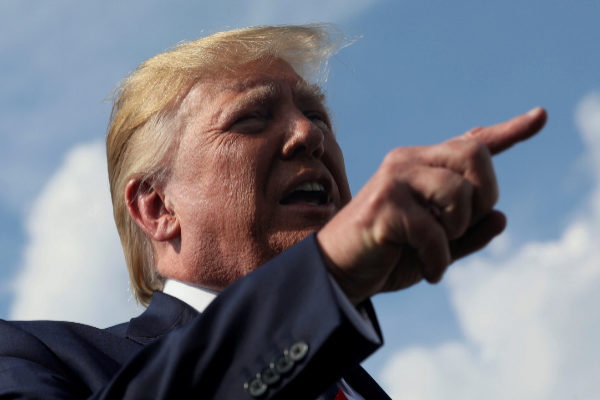- USA vs. China: Chronology of an increasingly worrisome trade war
The US president, Donald Trump, warned China on Sunday that a possible violent repression in Hong Kong, where anti-government protests have been going on for weeks, would make it difficult to sign the trade agreement that both countries negotiate.
"If it's another Tiananmen square, I think it's very difficult to do if there is violence," Trump told reporters before moving from Morristown, in the state of New Jersey, to Washington.
Trump thus referred to what happened on June 4, 1989, when the Chinese security forces crushed the student demonstration in Tiananmen Square, following orders from then Chinese Prime Minister Li Peng, who died on July 22.
The president again suggested to his Chinese counterpart, Xi Jinping, to consider a meeting with the protesters, who said "they would solve something that is good for everyone."
On the agreement, he said he believes that both countries will end up "making a very good deal", and considered that China needs it more than the United States.
But he warned that if something violent happens in Hong Kong: "it would be much harder for me to sign an agreement."
Last Wednesday, the Trump administration expressed a "deep concern" over the alleged presence of Chinese paramilitary movements along the Hong Kong border.
In a statement, US diplomacy also condemned the violence recorded these days and urged "all parties" to moderation, but said it supports freedom of expression and peaceful assembly in Hong Kong.
That same day, Trump referred to the issue on Twitter and took the opportunity to mix Hong Kong with the tariff war with China, apparently urging Xi to first resolve the crisis with the former British colony to trade negotiations with Washington.
Protests in Hong Kong began in June with opposition to a controversial extradition bill proposal, but they have evolved into a series of demands to improve the city's democratic mechanisms.
Violent clashes between some of the protesters and the Police are increasing.
Under the formula "one country, two systems", Beijing undertook to maintain the autonomy of Hong Kong after regaining the sovereignty of British-owned territory in 1997.
But many protesters saw in the controversial proposed extradition law - whose processing was declared "dead" by the Hong Kong Executive in early July - an attempt by China to meddle in Hong Kong's affairs.
According to the criteria of The Trust Project
Know more- Hong Kong
- China
- U.S
- Donald Trump
- World
AsiaThe Hong Kong crisis divides its population: "Protesters are beasts, terrorists"
Asia Hong Kong airport demonstration to "educate" visitors
International Hong Kong protesters challenge China on the ninth weekend of protests

